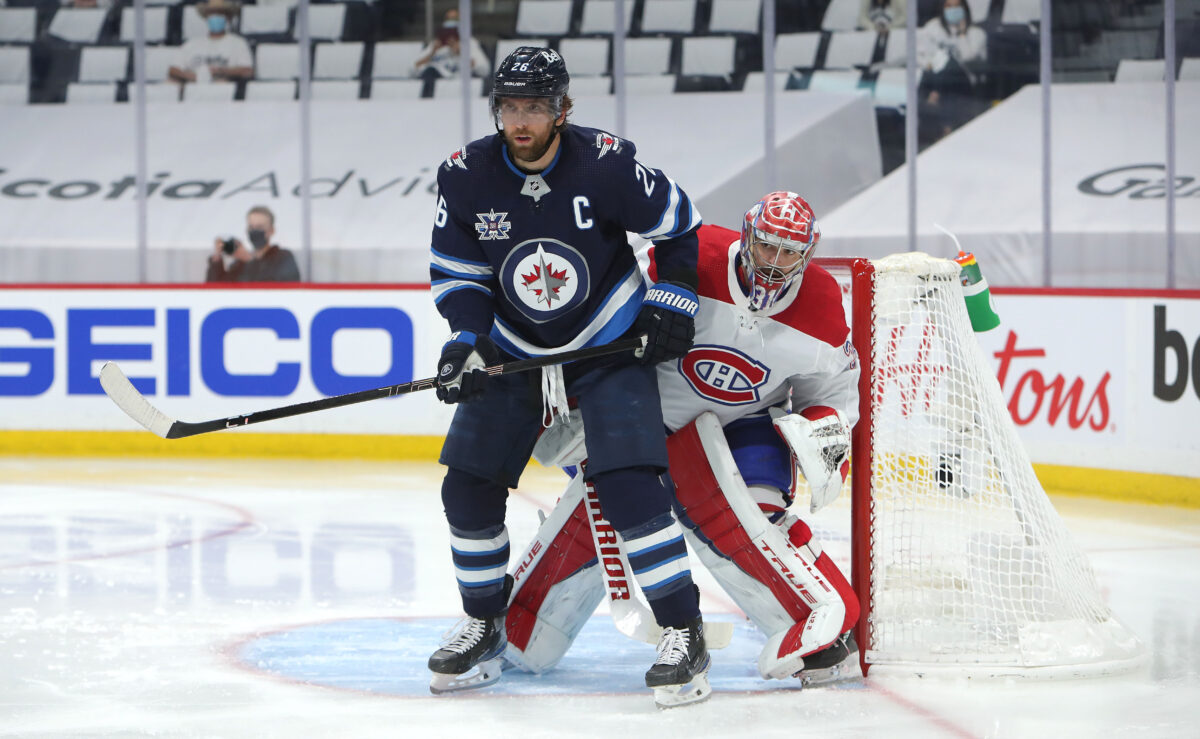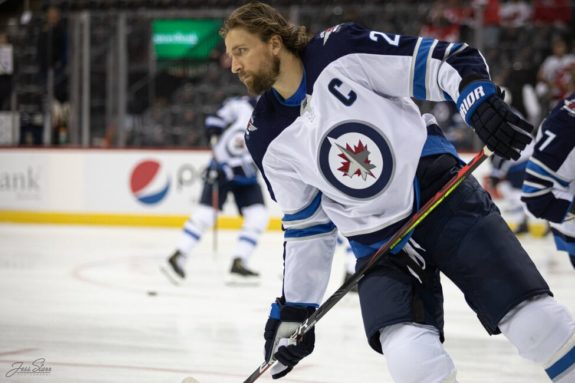The Winnipeg Jets’ 2020-21 season was full of ups and downs and ended with a second-round sweep at the hands of the Montreal Canadiens. In this series, we’ll take a look back on the season, player by player, and grade their individual performances with an eye toward their future with the team.
Coming into the 2020-21 NHL season, it seemed Blake Wheeler was ageless.
The 34-year-old, who had back-to-back 91 point seasons in 2017-18 and 2018-19 and 65 points last season, seemed to just be getting better and better at a time when most players begin to fall off.
Unfortunately for the Jets’ captain and the team that employs him, Wheeler’s wrinkles showed between January and June. His regression was noticeable in what he admitted was “by far the hardest year of (his) professional life.”
Points Totals Don’t Tell the Whole Story
At first glance, Wheeler’s season doesn’t look so bad: 15 goals and 31 assists for 46 points in 50 games — good for a third=place tie with Nikolaj Ehlers — and two goals and three assists in eight playoff games.

But point totals don’t tell the whole story. A a deeper look indicates that without a doubt, Wheeler was a detriment to success more often than he was a contributor to it despite operating at nearly a point-per game.
A Liability at Five-on-Five
Wheeler was an atrocious -17, worst on the Jets by eight points. At even strength, he was on the ice for 39 goals for and 52 against.
By the time the shortened season was a month old, it was clear Wheeler was a shell of his former self from a defensive standpoint, and was often caught coasting, being indecisive, or simply losing his man altogether. Some thought, at the time, that it was simply a lack of effort or a sign of his inevitable decline.
Related: Jets Being Hurt by Wheeler’s Weak Defense
The reasons were more complex than that, however. His struggles were exacerbated by head coach Paul Maurice’s poor line combinations: Wheeler mostly played with Kyle Connor and Mark Scheifele, even though the trio has been caved in at five-on-five for years.
Another reason for his struggles were because, unbeknownst to many, he was quietly playing with cracked ribs. He shouldn’t have been in the lineup at all.
Special Teams Continued to be a Strength
Wheeler was still productive on the man advantage, with his power play numbers doing yeoman’s work to distract from his lack of even-strength production.

A fixture on the Jets’ top power play, Wheeler produced four goals and 11 assists for the club that operated at 16.7 per cent efficiency.
Wheeler’s Role Must Be Reduced Going Forward
Wheeler is not the player he was even two seasons ago, and that’s alarming considering he still has three years left on his contract and will get paid a whopping $8.25 million in each of those seasons.
Father Time catches up with every player, and the Jets cannot pretend Wheeler is still suited for a top-six role. He was not held to the same standards as others this season because of the ‘C’ on his chest, but that can’t continue.
Wheeler is still a talented and dedicated player, and he showed flashes of his vintage self when he was finally healthy down the stretch after coming back from a concussion. He’s also tough customer who still wants to win and believes the team as currently constructed can do just that, despite their systemic problems being totally exposed in their second-round sweep at the hands of the Montreal canadiens.
Despite his surliness with the media — and that he was seemingly at a loss to diagnose what ailed the Jets during their brutal losing streak through April and early May — he is reportedly well-respected in the locker room.
With a modified no-trade clause and no-movement clause, Wheeler isn’t going anywhere. The name of the game going forward — if the 2020-21 Wheeler is the one the Jets can expect from now on — is for the team to deploy him in situations where they know he can succeed (such as the power play), and to keep him out of situations he can’t, even if that means less ice time and a bottom-six role.